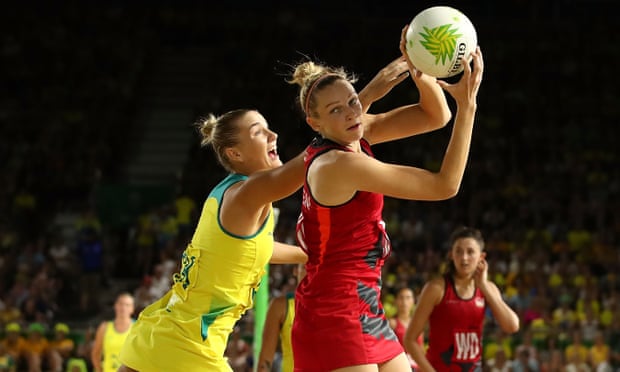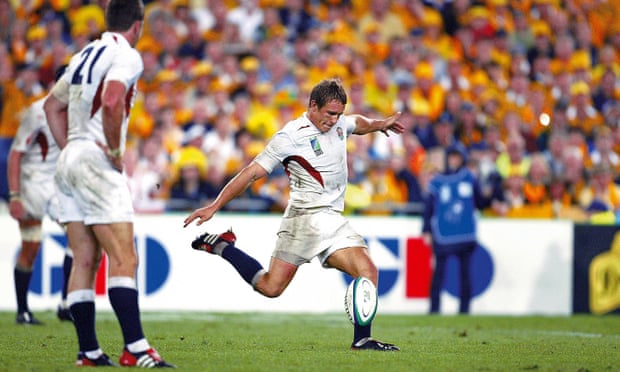On Tuesday, the FA announced that tickets for the women’s soccer friendly between England and the United States in October were on sale. Within an hour, his website had crashed due to demand. Gabby Logan had predicted it by signing the victory of the Lionesses at the European Championships last Sunday. “Do you think it’s all over?” she told viewers. “It is just beginning.”
In the week since England’s historic victory over Germany in the final, there has been understandable excitement about the future of women’s football in the UK. Even the Queen, who is not known for her footballing expertise, added her voice to the crowd. “You all set an example that will inspire girls and women today and generations to come,” she said in her congratulatory message alongside Leah Williamson.
His words consciously echoed the slogan of the 2012 Olympics – “inspire a generation”, a phrase that has become ingrained in our reaction to sporting success. We unthinkingly accept its implicit message that accomplishments on the global stage will generate increased following and adoption of the sport. Both the government and the trustees have modeled their funding on the precept.
And yet, the 10th anniversary of the London Olympics challenged this received idea. Last month the National Audit Office reported that despite initiatives to improve local facilities, train leaders and encourage people to try new sports, the proportion of adults taking part at least once a week has decreased in the three years following the Games. Other statistics released by the government reveal that participation is below pre-2012 levels, while childhood obesity has soared.
From 2004, when Tony Blair first launched London’s bid to host the event, successive governments promised he would leave behind a fitter and healthier nation. Last year, a House of Lords report determined not. “The Olympic legacy has failed to deliver the more active population that we were promised,” wrote Lord Willis, chairman of the committee for a national plan for sport and recreation. Others have expressed concern that this month’s Commonwealth Games will have little impact beyond the medal table. “Legacy cannot be passed on through the brilliance of the Games alone,” said Andy Reed, founder of the Sports Think Tank. “It requires a long-term commitment to changing the system, not fleeting ‘inspiration’.”
Dr Chris Mackintosh of Manchester Metropolitan University, a sports policy researcher who advised the Lords committee, says Reed’s claim is supported by evidence. “A red herring is that there is influential power in social media and television has a demonstration effect,” says Mackintosh; he cites a review of sporting mega-events by Professor Mike Weed of Canterbury Christ Church University, which found “no evidence that any of them staged it”. The spillovers can be as overstated in sport as they are in economics.
And although the British sport has reached dizzying heights over the past two decades, it has repeatedly failed to land. Take England’s victory at the Rugby World Cup in 2003, which drew 15 million viewers over their breakfast, still a British record for a rugby union match. “The Jonny Effect” – named after Jonny Wilkinson’s drop goal in extra time – attracted 5,500 more children to the sport in the following year. But England’s victory was unexpected and the RFU, the national governing body, was overwhelmed by the sudden influx; newcomers dropped out as facilities and coaching staff proved insufficient. At the height of Jonny Fever in 2003, there was a peak of 255,000 people regularly playing rugby; a decade later the figure had fallen to 190,000, and last year it was 133,600.
Two years later, the English cricket board has demonstrated its own (well practiced) ability to snatch defeat from the jaws of victory. England’s long-awaited win over the Ashes in 2005 had given their Test side their first success against Australia in 18 years. A gripping five-match contest, with jaw-dropping finishes, drew record viewing figures for the sport on Channel 4. But, with few exceptions, it was the last time England matches were freely available on terrestrial television. The ECB’s decision to sell the broadcast rights to Sky has been widely blamed for the dramatic decline in interest in the country’s ‘summer sport’, with attendance levels falling by a third over the past decade that followed.

The good news for women’s football is that the sports that have bucked the trend have been predominantly female. Since the British women’s hockey team won bronze in London in 2012 and gold in 2016, the sport has seen its junior participation double from 35,000 to 73,000, with the majority of that increase coming from girls. Girls and women have become increasingly engaged in cricket – as spectators and as players – since the England team won a World Cup on home soil at Lord’s in 2017.
Netball, meanwhile, has had a bumper four years since Helen Housby scored her last-second goal against Australia at the 2018 Commonwealth Games. his first victory in a major tournament and watched by almost two million people on the BBC – attracted 135,000 new players. The sport has filled arenas with its national and international matches. It attracted new sponsors and expanded its volunteer base. This year’s Commonwealth Games team were unable to match their predecessors’ victory over Australia but are aiming for bronze today.
Fran Connolly, managing director of England Netball, was director of sport development at the time. She says the secret to their success was that they had been planning the moment for a decade. “Traditional sport didn’t work for women and girls,” she says, “so we asked them what they wanted.” For 10 years, the sport’s governing body has designed programs to suit all types of potential players, from Bee Netball, which helps elementary school girls learn to throw and catch, to Walking Netball, for women of all age or any physical condition.
The strategy – which included return to netball sessions for women who had not played since school – was designed to prepare the sport for the interest they anticipated in hosting the 2019 World Cup in Liverpool . In the end, he proved himself a year earlier. “We had a menu of opportunities for any girl or woman interested in the sport, and we outfitted a workforce across the country…in every locality,” says Connolly. “So as soon as the spotlight was on our sport, we were able to direct them to a nearby offer that worked for them.”
It helped that England Netball was run by a mixed board, which recognized and understood the issues that prevent women from playing sport. Stephanie Hilborne, who runs the Women in Sport charity, believes England Netball has offered a model for other sports looking to build on high-profile successes. “There is no point in pushing girls to play desperately if there are no opportunities for them on the pitch,” says Hilborne. “It’s a positive feeling for the nation, but it won’t change the system. We need to address how society limits opportunities and this is about inequality of access – whether it is economic inequality, which affects both girls and boys, or inequality between the sexes.

Andy Murray has called it “madness” that tennis has seen fewer recreational players in a period in which it won two Wimbledon titles, two Olympic gold medals and a US Open, and his brother Jamie openly criticized the LTA for failing to capitalize on Andy’s accomplishments. . “How are you going to grow a sport,” he asked in 2019, “if you can’t do it when you have one of the biggest stars in tennis in the last 10 years?”
The seductive nature of elite success can blind us to the larger work needed to sustain a sport: Mackintosh describes it as “like painting your car and not looking under the hood.” He says the sport needs to think more carefully, and much earlier, about legacy to ensure isolated moments of glory are not wasted in years to come.
“Yes, winning things is exciting and it makes us feel good,” says Hilborne. “But what he needs to do is motivate people, to make us more urgent for change.” Ten years after the London Olympics, it’s a lesson that it’s time to learn.

